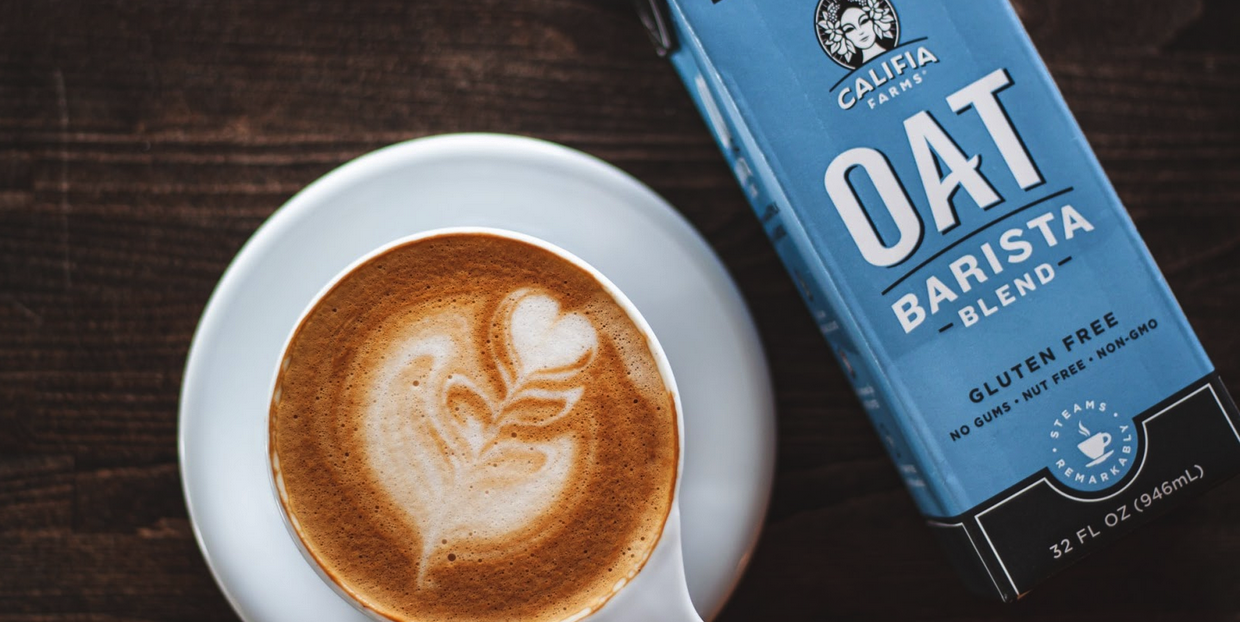Even in 2023, confusion still surrounds oats and the gluten-free diet. Are oats gluten-free (GF)? How much is safe? Is oat milk gluten-free? Do people on a gluten-free diet need only to eat oats labeled “gluten-free?” Is it different if you have celiac disease vs. gluten sensitivity? Let’s clear up the confusion around oats and answer some pressing questions.
Do Oats Contain Gluten?
Oats do not naturally contain gluten. Oats in the United States are cross-contaminated during farming and production.
Because production and growing practices often result in oats being cross-contaminated with wheat gluten, people with celiac disease or severe gluten sensitivity must pay attention to what type of oats are in products. Small amounts of gluten can wreak havoc on the health of people with celiac disease and severe gluten sensitivity. But let’s talk about options for obtaining oats that are “safe” for someone on a strict gluten-free diet.
Purity Protocol Oats
To ensure that oats are entirely free of cross-contamination and truly gluten-free,
You will need to look for brands using purity protocol oats. “Purity protocol oats.” are oats that are grown and manufactured in a gluten-free environment. These are often difficult to find and expensive to use in products. The next best option is certified GF oat products.
Certified Gluten-free Oats
Many products contain oats listed in the ingredients as “certified gluten-free oats.”
The problem is that certified GF oats may be purity protocol but not necessarily. They can also be oats that have been farmed using traditional growing practices and then use a controversial sorting method to “remove the gluten.”
Oats produced in this manner are not recommended for people with celiac disease. If someone with celiac disease chooses to eat oats labeled gluten-free, it is like playing Russian roulette. If it says “certified gluten-free oats,” I recommend you contact the company to confirm what type of oats are used. I am not a fan of Russian roulette.
Gluten Sensitivity & Oats?
For the gluten-intolerant person, oats may or may not be problematic.
There are no studies on this issue. Some gluten-intolerant people state they can not tolerate oats, even GF oats.
Many people with gluten sensitivity actually have FODMAP intolerance and are not sensitive to the gluten in wheat. They are reacting to the sugar component of the grain, not the gluten. A person with FODMAP intolerance can typically tolerate oats in small amounts.
Oat Intolerance
Oat Intolerance: Some people react to all oats, even GF oats
Oats do not contain gluten. They contain a protein that looks like gluten. In some people, this protein causes symptoms similar to a “gluten-reaction.”
Eight percent of people with celiac disease react to oats, even GF oats. In this 8% of celiacs, oats cause a mild to severe reaction. In my clinical (and personal) experience, the reaction is slightly different than a “gluten-reaction.” None the less it is terrible.
Symptoms differ for everyone, just as they do with eating gluten. Some of the symptoms include muscle pains, headache, neurologic symptoms such as anxiety, depression, spasms, digestive problems, flu-like symptoms, and more. These symptoms can last for days to weeks.
Worldwide Gluten-Free Restaurants & Bakery Locator-Over 1800 Listings It's Free!
Is Oat Milk Gluten Free?

Sales of oat milk have increased by nearly 700% in the past year.
While some companies, cafes, and dining establishments have chosen GF oats and oat milk to use in their products, this isn’t the case for all.
If the oat milk used by an establishment is not gluten-free, this is a game-changer.
You must now ask the barista if their oat milk is gluten-free. Ahhhh, and all you wanted was hot coffee!
If the oat milk used by a company or establishment is gluten-free, you are good to go. If you react to oats, you should avoid all products and drinks containing oat milk.
What To Do
- Ask questions, ask questions, ask questions! If you aren’t sure, skip it or call the manufacturer.
- Learn the brands of oat milk used in your favorite cafe or restaurant. You can sign up for my email list above and receive a free PDF to get you started.
- Educate people on the difference between oats and GF oats-that is the only way to make progress.
- Inquire at restaurants and coffee houses- if they are corporate, and their oat milk/oat products are not gluten-free- contact their headquarters. They may not even be aware of these issues. They may be able to use other brands if enough people request a change. If you are a regular customer-ask them to consider a change of oat milk brands or products with GFoats.It never hurts to ask. They might say yes!
Cafes/Coffee Houses
If the oat milk used is gluten-free:
If you do not react to oats, you are good to go!
If the oat milk is not gluten-free or you react to oats:
- Ask for a clean pitcher and have them steam the spout with water before making your drink with another form of “milk. Let them know you have an “allergy.” While celiac disease is not an “allergy,” that is the lingo they are used to.
- Choose an iced coffee beverage that doesn’t require a pitcher or steam spout to be cleaned.
- Have another coffee drink without steamed milk of any kind.
- Get your espresso drink with your milk of choice on the side. The milk will not be steamed, but If you don’t want to ask all the questions, this is an option.
- Skip the coffee but not the social occasion. Choose another beverage. Getting out and about is important!
Restaurants & Bakeries
Ask, ask, ask.
- Many gluten-free products are now made with oat flour. Unfortunately, not all people understand that GF oat flour is needed to be truly gluten-free. Ask
- If you are met by a look of confusion when asking and can not tolerate any oats-avoid the product.
Products
Read labels
- If the label does not state ” GF oats”- contact the company.
- If the label doesn’t state ” GF oats” and the product carries a “certified gluten-free” label- I recommend you contact the company for clarification.





